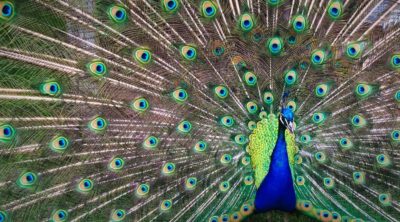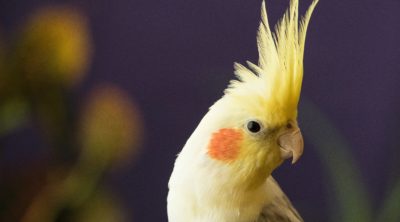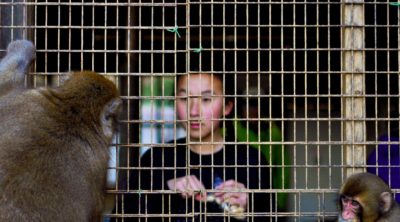
Sugar gliders are omnivores that feed on a variety of foods, and like humans, they have different palates. Some are picky eaters, while some can eat just about anything. Here is PetPonder’s brief overview of what sugar gliders eat and drink.
Did You Know?
Sugar gliders have sharp, specialized teeth that are fashioned to strip bark from a tree. Unlike rodents, their teeth do not grow throughout their lives.
Sugar gliders are small nocturnal gliding possums, they belong to the marsupial infraclass. They look very similar to squirrels, but sugar gliders can glide through the air, which squirrels can’t, besides they are not at all related to each other.
Their scientific name Petaurus breviceps translates to short-headed rope dancer. They are native to Australia, mostly found in the Northern and Eastern regions. They are very social animals, and hence, it is recommended to keep them in pairs or groups as pets. Due to their small size and gentle nature, they make awesome pets.
They eat almost anything, but pet owners are always curious to know about their pet sugar gliders’ dietary habits. Let’s take a look at their eating habits.
Wild Sugar Glider’s diet
► With the major part of their time spent on trees, they have a highly-varied diet. They are omnivorous by nature, so they eat both plants and small vertebrates.
► In the natural wild environment, they will hunt for small insects like beetles, moths, worms, grasshoppers, crickets, spiders, and lerps.
► Since they are nocturnal animals, they spend the night hunting small insects, and gliding through various trees to consume sap, and gum of acacia and eucalyptus tree. They are also known to suck manna, which is a sugary deposit from the sap, oozing from the wounds on tree trunks or branches. They also thrive on nectar, honeydew, and pollen.
►Sugar gliders consume a variety of insects to complete their protein intake. Protein is really necessary for them, especially during their mating season. In the wild, they consume protein by foraging on the aforementioned insects.
►They also feed on many vertebrates like lizards, mice, and sometimes, birds and their eggs. Their diet in the wild is very healthy and low in phosphorus. Some researchers claim that they obtain their calcium intake, from the small mammals they consume.
►Their diet varies according to the seasons. They feast on insects during summer season, but in the winters, due to the unavailability of insects, sugar gliders thrives on the gum and sap of acacia and eucalyptus trees and fruits.
Captive Sugar Glider’s Diet
► As the name suggests, they love sweets, so you can feed your pet sugar glider a variety of fruits like watermelons, pears, pomegranate, pears, figs, purple passion fruit, plums, grapes, papayas, mangoes, etc. You can even feed them oranges, but keep them as a treat, and feed them once a week. Non-fat fruit-flavored yogurt can also be fed, you can sweeten up their meals with little bit of baby juice. Don’t feed your glider seeds of any fruits, as it can be toxic to their health.
►Vegetables such as cucumbers, sweet potatoes, eggplant, sweet pepper, broccoli, lettuce, and spinach can be fed to your pet. Corn can also be fed, but do that once a week, as corn seems to be their favorite food.
►You can feed your sugar glider insects like crickets, meal worms, grasshoppers to provide protein to your pet. Abstain from feeding your glider insects that have been caught outside, because chances are these insects must have come in contact with the chemicals making them harmful to your pet’s health.
► You can also feed them boiled eggs, it should be peeled and mixed with low amount of cereal, and, tiny bit sugar.
► Don’t forget to place a metal dish, filled with water. Place it at the bottom of the cage, and replace the water everyday.
►Avoid artificial sweeteners and colors. No matter how much you love your pet, never feed them chocolate, candy, sugar, they can lead to health problems.
The proper diet of sugar glider is still a subject for research because very little is known about their eating habits. Since they are prone to metabolic bone disease, it’s very important to keep a check on their diet.


